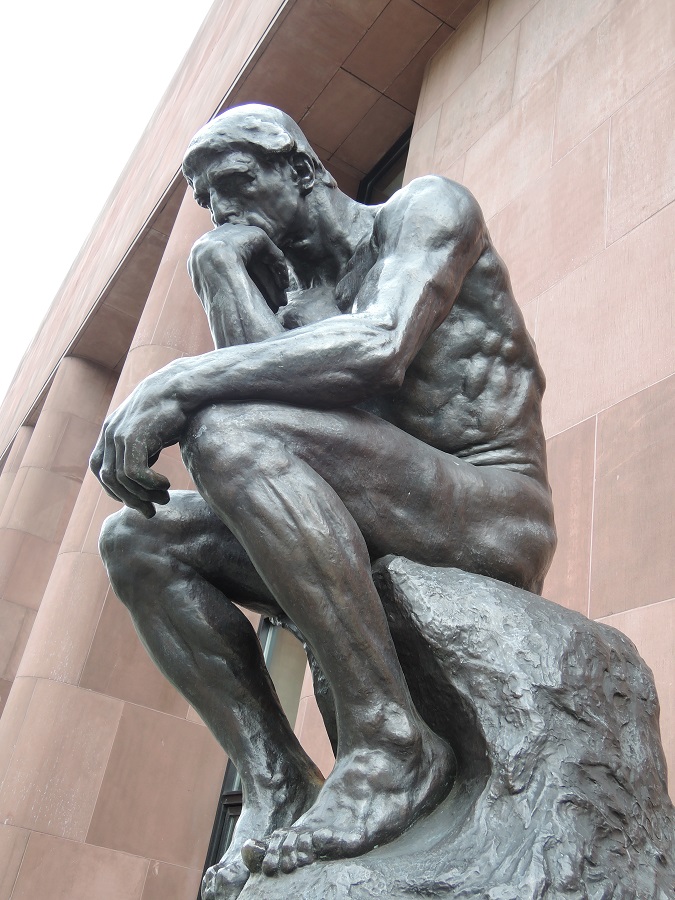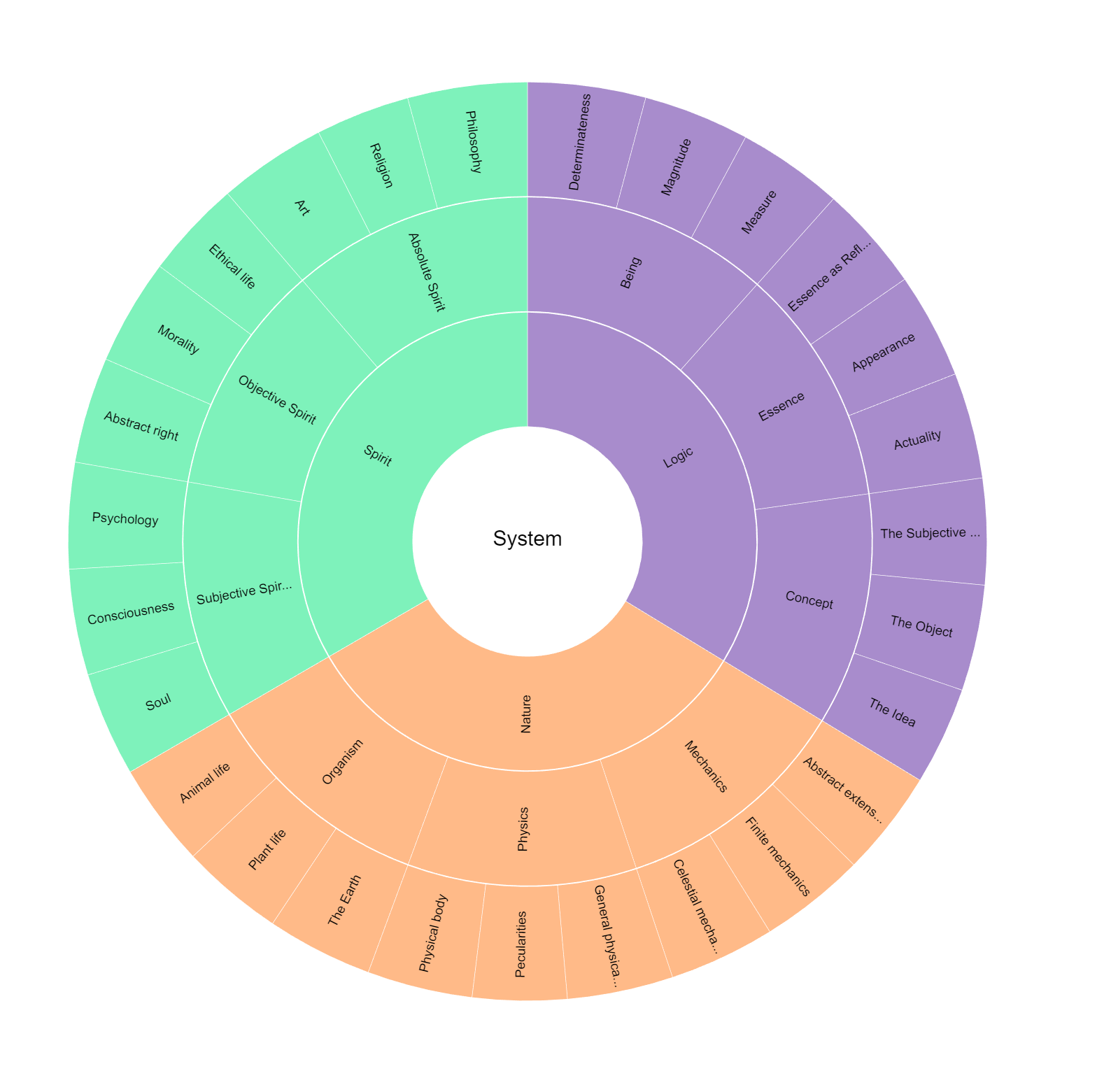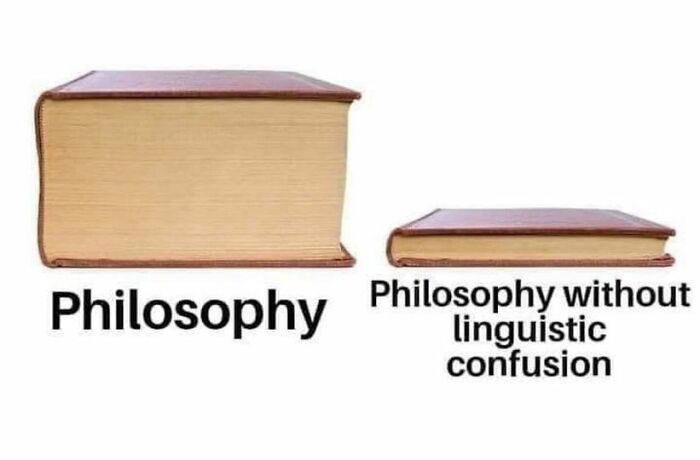Philosophy

Philosophy allows us to examine questions about ethics, metaphysics, and other areas that science can't provide definitive answers for. It allows us to create metanarratives that give us meaning and inspire us with visions for a better future.
"I must study politics and war that my sons may have liberty to study mathematics and philosophy." -John Adams
The Main Page outlines the core tenets of the metaculture philosophy.
How metaculture Approaches Philosophy
The following describes the perspectives that combine to make metaculture a uniquely robust philosophical system.
Complete
metaculture is a complete philosophical system, addressing all of the fundamental questions regarding god, reality, consciousness, politics, aesthetics, etc. that philosophers have attempted to answer over the centuries.
However, it does not re-argue all of these ideas from first principles. It collects and summarizes the latest and best arguments made by others and shows the connections between them.
Science First
One key difference is that it brings to bear all of the latest scientific evidence regarding psychology, ethics, evolution, and best practices that our ancestors never had access to. They could only postulate, where now we can theorize. This changes how many philosophical questions should be answered in the future. Why speculate when we can experiment? If the scientific domain has provided us with ways to get empirical answers about questions of consciousness and ethics, then they should no longer be debated as matters of philosophical opinion.
For example, many argue against determinism based on the fact that 90% of philosophers in history believed in free will. This argument ignores the fact that 90% of philosophers lived before the age of neuroscience and psychology, so a material view of consciousness that makes any kind of sense was inaccessible to them. Once you accept that our perceived agency is an emergent property of our neural activity, the impossibility of libertarian free will is self-evident. This is why neuroscientists and atheists largely embrace determinism despite it being against the consensus of the philosophy community.
Molyneux's problem is another example. We now have the technology to restore sight to many people. We can just ask them if they recognize that cube that they have only known through touch. It's another once-philosophical question that has become a purely neurological question thanks to advances in scientific and technology.
By making clear the distinction between beliefs that modern sociology and neuroscience can inform, ones that represent universal principles, and ones that are matters of cultural perspective, metaculture transcends the limitations of both modernism and postmodernism. Metamodernism describes this relationship in more detail.
Narrative Second
After getting the science right, putting the latest conclusions and best practices from science and philosophy into a holistic, universal metanarrative is the second goal. All of the formal arguments and evidence can be found in the references for anyone that is interested. The goal of the wiki is to tie them together to show the connections and universal patterns, not to re-argue basic philosophy from first principles and put everyone to sleep.
Open Source
Another key difference is that it is configured as an open-source, collaborative platform (the wiki) that has self-correction at its first principle. It is an experiment in applying the principles of science and distributed systems to the creation of metanarrative, so that it can maintain multi-generational relevance in a technologically accelerating future.
Self-Learning
The wiki format also makes it possible to include direct links to relevant reference material and educational videos, allowing anyone to learn the concepts being discussed. The philosophy is presented along with a free university curriculum designed to teach all of the necessary concepts required to understand it. This makes it accessible to anyone who has not had the specific educational background to understand every scientific field or cultural reference employed.
Accessible
metaculture often employs an "informal reasoning" tactic that uses hack humor, cultural connections, simplified silly syllogisms and ample alliteration to convey philosophical truths in a ways that resonate. It does this while staying within the bounds of materialism and what can be proven with evidence, making sure these musings aren't misconstrued as misinformation.
Making complete arguments reasoned from first principles using all of the academically correct terminology is not how you write philosophy for public consumption. If a metanarrative makes sense of the world without implying anything unscientific, and people can understand it and explain it to their friends, then it is a much more powerful meme than anything produced by academia. The academic works are absolutely necessary to push the boundaries of thought and inform the evidence and rhetoric used on this wiki. Something more accessible is needed to enable these ideas to spread as far as they need to in order to reach a tipping point.
Think about the wisdom that has truly stood the test of time. Is it all based on formal reasoning? Or is it based on narrative?
Practical
Philosophy used to be all about helping real people make better life choices. metaculture gets back to those roots by presenting a philosophy with proven emotional and psychological benefits that will improve your happiness every day.
metaculture is philosophy by and for people with day jobs
It filters out the misinformation, pseudoscience, and information overload to present a set of "Evidence-Based Best Practices" that presents the latest and best advice for life in a clear and concise way. It offers practical ethical analysis of modern problems like social media and money addiction.
Musical
Did Nietzsche or Hegel include a musical accompaniment to reinforce each of their arguments? It'd be a lot cooler if they did!
Materialist Spirituality
metaculture also incorporates aspects of religion by taking an optimistic perspective on the nature of reality, incorporating analogs for each of the major theological components of religion, and proposing ritual practices to reinforce them. It rejects the supernatural and uses evidence-based arguments in lieu of faith. The result is a unique mix of science, philosophy, and spirituality that forms a robust holistic belief system that has many practical psychological benefits.
Best of Philosophy, Condensed
There are also many topics in philosophy that have been thoroughly hashed out by much greater minds. Thanks to the wiki format, any principle of philosophy that is borrowed in its entirety from another system can be substituted with a hyperlink or embedded video.
There are many self-help grifters who mix spirituality, pseudoscience, and capitalism to create shortcut philosophies based on the eternally popular Top Ten List. [1][2][3] These are easy to put into an elevator pitch, but unlikely to help you understand any greater truth about life, the universe, and everything. In order to make rational sense of reality, you need an education that covers all of the necessary prerequisites.
By linking together these ideas with supplementary content that helps you understand each one, the metaculture wiki creates a roadmap for systematically learning the complete philosophy, rather than simply summarizing its conclusions. It also tries to avoid creating the problem of jargon-filled academic works that require you to already understand it in order to understand it. It does this by including the supplemental materials, metaphors, and pop-culture references, using language that is accessible to anyone with a general education, and providing Wikipedia links for any term that the reader may not know.
If your formal education in these subjects is limited, it will take you longer to understand because you will need to learn them first. If it is extensive, you will already recognize most of the concepts covered in this wiki, and probably have more complex views about many of them. But, you may not have put them all together in a way that is quite so systematic, and if you have then you should become an editor for this wiki!
In any case, it is unfortunate that there are no shortcuts to creating a meaningful philosophy that fulfills the psychological needs of modern life, since people are lazy as hell. The wiki is as close as you can get to the CliffsNotes version. But you have to read the entire summary! Hopefully you can at least do that!

Public Philosophy

Modern academic philosophy has become extremely niche, esoteric, abstract, and divorced from its original goal of offering people good advice on how to live.
This interview with MIT professor Kieran Setiya called Life is hard. Can philosophy help? does a great job of outlining this problem and countering it with practical philosophical inquiries that are accessible to the general public and applicable to our daily lives.
The metaculture wiki adopts this perspective on philosophy. If you need a philosophy degree to read your philosophy, then you have not joined the human conversation, you have joined a circle jerk. The goal of philosophy is to provide better ways of understanding how to live good lives, and it must be accessible to the majority of the living in order to accomplish that goal.
If some of the concepts only receive a surface-level examination, and more commonly used terms like "utilitarianism" are used in favor of more precise but obscure terms like "consequentialism," this is done with the goal of accessibility and usability. The point is not to push the boundaries of philosophical thought, it is to summarize the current state of the art in a way that can fulfill that utilitarian goal of doing the greatest good for the greatest number of people.
The goal is not utilitarian theory, it's utilitarian praxis
The Public Philosophy section lists organizations and publications dedicated to making philosophy more accessible.
An End to Impossible Hypotheticals
Too much of philosophical discourse is based on hypothetical scenarios that postulate outcomes that would be impossible given what we now know about how our brains and societies work.
For example, the common argument against utilitarianism is that you can envision scenarios where killing one person could benefit several others, such as with forced organ donation. These hypotheticals assume that everyone is just happy to be alive at the end of the process, nobody feels any guilt, and there are no other societal repercussions to legalized forced organ donation. These events can never take place in a vacuum, so why base our ethical philosophy on thought experiments that do?
Simulation Theory is another popular example, which assumes that it is actually possible to fully replicate the brain's inputs from the environment, or that genuine happiness can be produced artificially. All evidence suggests that the complexity required would necessitate recreating the universe to run that simulation, so why do we spend so much time entertaining these thought experiments?
Evolutionary psychology, neuroscience, and artificial intelligence studies have produced mountains of real data on how humans truly think and behave. Rather than doing thought experiments, we can now do real experiments! Philosophy needs to acknowledge this and admit when it has ceded metaphysical ground to scientific inquiry.
Open Source Philosophy
The wiki format allows philosophy to be crowdsourced, version controlled, and self-correcting. This was not available to Aristotle or the authors of scripture. While the original framework, voice, and perspective have been established by a single author, it should take on a life of its own and expand to include the expertise and perspectives of many minds, and achieve greater truth through the wisdom of the crowd.
If Reddit is the platform where humanity's collective consciousness goes to debate ideas, the metaculture wiki is designed to be the platform where the best of those ideas are collected in one place so they can be separated from the endless stream of information that is pumped through our newsfeeds and has no stickiness whatsoever. It is the universal FAQ.
Philosophy is an Ongoing Conversation
As anyone who has ever published a work of philosophy has experienced, people who read it will immediately point out all of the arguments in history that you failed to respond to. Sometimes these have varying degrees of relevance, and you can often extrapolate the argument that would've been made, even if the author didn't include it in their book. These criticisms are forever seen as shortcomings of your work, and even if your future publications address these issues, it is often like retractions in the media--far fewer people see the correction than saw the original.
The wiki format avoids this by providing a built-in forum for discussing these points between contributors on each page, make edits to correct factual errors or errors in reasoning, or add new sections to respond to arguments or criticisms that were not addressed. This may annoy critics when their criticisms are invalidated by an edit, but this is obviously a feature of the platform that contributes to its trustworthiness and ongoing improvements in accuracy.
Some might say Philosophy is a Process, especially if you're Alfred North Whitehead. His view of the ever-changing world in which we live laid many of the foundations for the concept of a self-organizing universe that this wiki describes.
Philosophy Got 99 Problems, Few Are Relevant to You
This List of Problems in Philosophy outlines the major paradoxes, dilemmas, and thought exercises that philosophers like to debate. If you read them you will see a major throughline in that the outcome of these debates is almost certainly not going to impact your life choices in any meaningful way, unless you are a professional logician. If you do happen to encounter one of these problems in real life, most people make a safe bet on the common sense choice and don't worry that an attempt to arrive at that choice with formal logic results in a paradox. Most of the time their choice is right.
Philosophy Videos
These free resources have a treasure trove of information on every philosopher in history.
Hidden Brain - What Would Socrates Do?